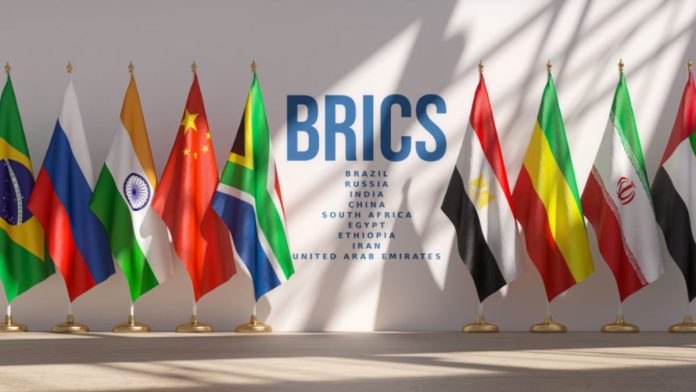Росія прагне використати групу БРІКС для обходу долара у міжнародній торгівлі, однак ці амбіції, як стверджує Bloomberg, мають всі шанси залишитися лише фантазією. На щорічному саміті БРІКС президент Володимир Путін заявив про наміри знизити роль долара у світовій економіці. Проте організатори заходу радили учасникам мати при собі долари або євро, оскільки неросійські картки Visa не працюватимуть.
Автори статті зазначають, що це є красномовним прикладом труднощів, з якими стикаються країни, що намагаються відмовитися від валюти, яка домінує у світовій фінансовій системі з часів Другої світової війни. Незважаючи на те, що країни БРІКС представляють значну частину світової економіки, наявна глобальна фінансова інфраструктура, орієнтована на долар, продовжить забезпечувати його домінування ще принаймні кілька десятиліть.
Росія та Китай намагаються просувати ідею дедоларизації, але реальних механізмів для цього наразі не існує. За словами економістів Bloomberg, країни БРІКС мають три варіанти обходу долара у транскордонних платежах: торгувати за місцевими валютами, використовувати нові цифрові валюти або китайські юані. Однак усі три варіанти є сумнівними.
Розрахунки в місцевій валюті зазвичай дорогі через низьку ліквідність, а цифрові валюти занадто нестабільні. Юань, який Китай прагне інтернаціоналізувати, також стикається з проблемами — Пекін не хоче дозволяти вільне коливання його курсу. Крім того, залишається відкритим питання, чи захоче Китай в умовах економічної кризи викачувати необмежену кількість юанів за межі своєї економіки.
Автори Bloomberg підкреслюють, що США в кризові моменти допомагають своїм союзникам, забезпечуючи їх доларами для підтримки фінансової системи. Натомість Китай, навіть у випадку Росії, не може забезпечити достатню кількість юанів. Цю тему навіть не піднімали на саміті БРІКС, що свідчить про обмеженість реальних можливостей для дедоларизації на сьогодні.


